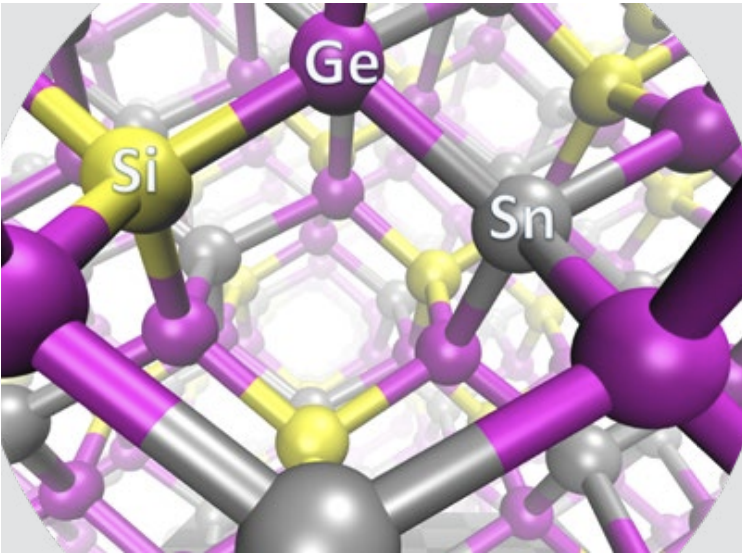Professor Tianshu Li has always been keen on exploring fundamental materials behaviors, but he also aims at transforming the knowledge to facilitate potential technology breakthrough. In this regard, Prof. Li’s recent discovery of short-range chemical order in silicon-germaniumtin (Si-Ge-Sn) semiconductor alloys directly initiates a $10.35 million Energy Frontier Research Center (EFRC) funded by the Department of Energy.
Using the state-of-art computational modeling, Prof. Li’s team recently unveiled a hidden short-range order beneath the nominal randomness of Si-Ge-Sn alloys. Excitingly, this finding also suggests a new route to enable new functions and devices that are hard to achieve through conventional approaches. Inspired by this prediction, a multidisciplinary team assembles to pursue this idea through this newly funded EFRC center which includes 10 institutions and 18 principal investigators. If proven feasible, the idea will expand the opportunity for a new low-cost, low-loss, reliable manufacturing microelectronics technology on a silicon platform. Supported by this EFRC center, Prof. Li will have the opportunity to not only deepen the understanding of short-range order and its impact in the key semiconductor alloys, but also work closely with experts in other domains to transform the knowledge to enable scaled-up, reliable, and cost-effective sequence of operations for manufacturing semiconductor structures and devices from the bottom-up.
In parallel, Prof. Li is also dedicated to expanding the knowledge base for crystal nucleation. His team is currently supported by two NSF projects: one where his team is developing software infrastructure for modeling crystal nucleation, and the other where Prof. Li collaborates with his colleague Prof. Xitong Liu to elucidate the coupling of inorganic scaling and organic fouling in reverse osmosis desalination.


